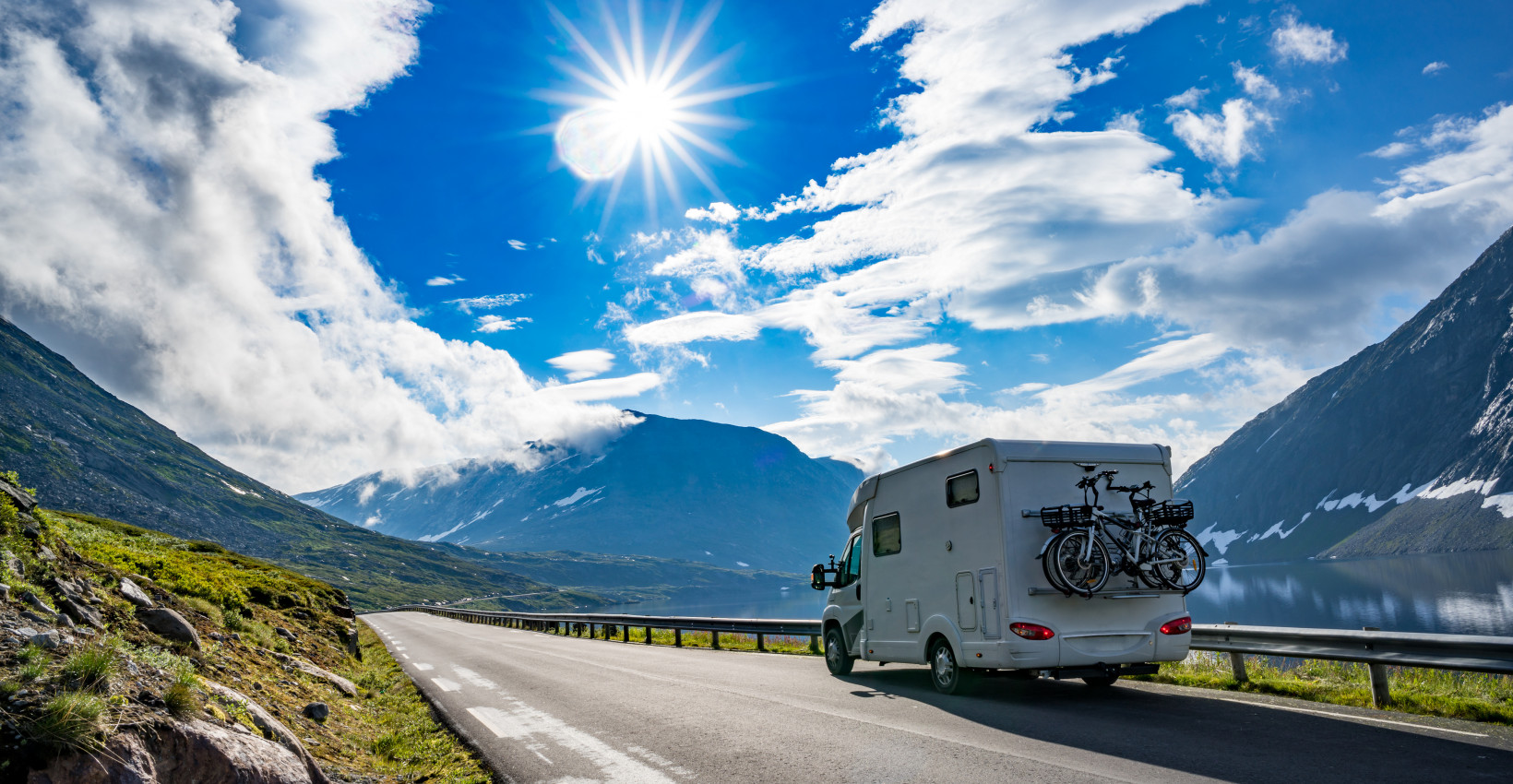Camper shopping 101

Is a new recreational vehicle on your road map? Before you start planning your cross-country road trip, there are some factors to consider throughout the buying process. We’ve rounded up a few helpful tips to get you from research to purchase to hitting the road.
Before you buy
Even before you begin your search for a camper, RV, travel trailer, or pop-up, make sure to check the towing capacity on the vehicle you plan to use. Although your car may have a towing package, the pulling capacity may not be enough for your dream camper.
Also, it might sound like a no-brainer, but: Set a budget! Consider your total monthly expense when determining what your price point will be — and remember to take into account the loan amount, storage costs, and insurance of the vehicle you have in mind.
While you’re shopping
As you look for a camper, carefully consider your needs: How many people will be sleeping in it on a regular basis? How big are the tanks, and what is the total length? Will you need to get a specific license to drive it? What seasons will you use it in? All these factors can come into play when considering things like durability, seasonal weather capabilities, or how long you can go before finding a dump station.
Additionally, be sure to look at the dry weight and packed weight of the camper. The dry weight is the minimum the camper can ever weigh, not including any water or supplies you might put inside. When considering the type of camper to purchase, it’s also wise to look at overall costs. For example, if you’re looking to purchase a fifth wheel, know that there may be additional costs for installing the truck bed hitch. Most campers will also need a sway hitch to help with safe driving; most dealers can include this in your purchase price.
After you buy
So, you bought yourself a camper — congratulations! Now what? For starters, doing a practice run with your camper can be very beneficial. Staying a night or two closer to home can help you figure out all the bells and whistles of your new digs while still being close enough to home if something goes awry. If you purchase from a dealership, be sure to block out some time during pickup for a good overview of how everything works. How to dump and clean the tanks, how to open and close vents for cooking appliances, and how to level the unit are just a few things they can teach you.
Regular maintenance is crucial to prolonging the life of your camper. This goes beyond a simple oil change, too — for example, if you live in a cold winter weather environment, the camper will need to be “winterized” during winter months to prevent any of the water lines from freezing or bursting. The roof will also need to be conditioned about every two years. This helps to maintain seals and prevent cracks. Any maintenance can be completed yourself or through an RV dealer mechanic.
With careful consideration, savvy shopping, and responsible ownership, your home away from home can take you where you want to go for years to come. And if the open road is calling to you, visit our RV loans page to learn more about our financing options.
Learning Center articles, guides, blogs, podcasts, and videos are for informational purposes only and are not an advertisement for a product or service. The accuracy and completeness is not guaranteed and does not constitute legal or tax advice. Please consult with your own tax, legal, and financial advisors.




